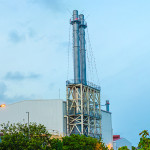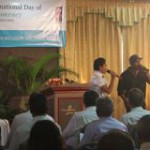Social networking websites like Facebook and Twitter have been praised as key tools in helping facilitating the recent political uprisings across some Middle East and North African nations, according to Frank La Rue, the UN special rapporteur on freedom of opinion and expression.
La Rue’s comments, which were issued ahead of World Press Freedom Day today, aim to raise awareness of the role he believed social networking had played in allowing individuals all other the world to share information instantaneously, particularly during protests seen in countries such as Tunisia, Egypt, Syria and Saud Arabia.
“As one activist tweeted during the protests in Egypt, ‘we use Facebook to schedule the protests, Twitter to coordinate, and YouTube to tell the world’,” he noted in a statement printed by the Agence France Presse (AFP) news agency. “I believe that we are currently in a historic moment. Never in the history of humankind have individuals been so interconnected across the globe.”
La Rue stressed that despite this potential, the internet was still being censored by some governments along with the use of “age-old tactics” like intimidation, arrests, torture, disappearances and killings to try and suppress freedom of speech.
“The power of the Internet to awaken individuals to question and challenge the status quo and to expose corruption and wrongdoing has generated fear among the powerful,” said the UN expert. “The events in the Middle East and North Africa have shown that it is never a viable long-term option to suppress the voices of the people,” he added, calling on “all governments to choose reform over repression”.





